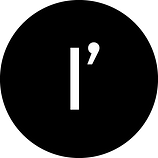The Exclusionary Language of Pregnancy Apps
Apps that help you track your pregnancy and figure out who to call when baby coughs are helpful, but what happens when you’re a parent who isn’t represented?
 I’m not yet a parent, but I am incubating a little one. I’ve noticed that with most folks, when I mention I’m expecting, the first question out of their mouths is, “are you having a girl or a boy?”
I’m not yet a parent, but I am incubating a little one. I’ve noticed that with most folks, when I mention I’m expecting, the first question out of their mouths is, “are you having a girl or a boy?”
I recently crossed the threshold into my second trimester. My partner and I decided we would find out the sex of the baby so that we can prepare ourselves to help them navigate the roles society will inevitably assign to them. But we don’t plan on telling anyone the sex until the baby is here, and we’re finding it’s a delicate stance to take in this heteronormative, binary world.
Since this is my first child, I did what any extremely online person does when they’re in search of information and community: I went looking for an app. Despite the breadth of offerings available for iPhone and Android, it’s slim pickings out there for a mother to be. The Google Play Store, in particular, is rife with pregnancy tracking and parenting advice apps, but I found the content of each almost suffocating with rhetoric around binary gender.